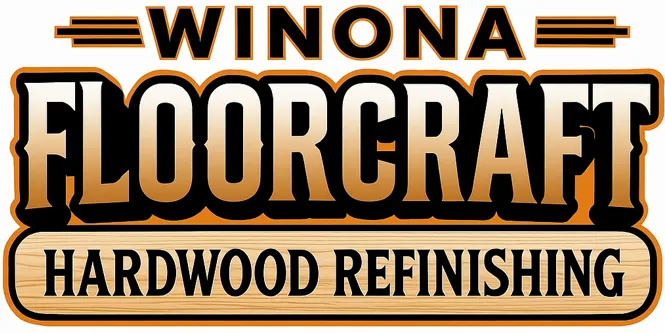
Understanding Different Flooring Types: A Comprehensive Guide
Ben
Understanding Different Flooring Types: A Comprehensive Guide
Choosing the right flooring for your home or office can be overwhelming with so many options available. From the timeless beauty of hardwood to the durability of tile, each flooring type has its own set of benefits and drawbacks. In this comprehensive guide, we’ll break down the pros and cons of four popular flooring options—hardwood, laminate, vinyl, and tile—so you can make an informed decision for your space.
Hardwood flooring is a classic choice known for its natural beauty, durability, and ability to enhance a room's aesthetic.
Pros:
High-end appearance: Adds warmth and elegance to any space, with a wide variety of wood species, colors, and finishes to choose from.
Durability: With proper care, hardwood can last for decades and can be refinished multiple times to restore its beauty.
Increases property value: Homes with hardwood flooring often see higher resale values.
Eco-friendly: Sustainably sourced hardwood is a renewable resource, making it a good choice for environmentally conscious homeowners.
Cons:
Cost: Hardwood flooring is one of the more expensive options, both in terms of materials and installation.
Sensitive to moisture: Wood can warp or stain if exposed to excessive moisture, making it less suitable for bathrooms or basements.
Requires maintenance: Hardwood needs regular care, including refinishing, to keep it looking its best.
Laminate is a more affordable alternative to hardwood that mimics the look of real wood or stone through a photographic layer.
Pros:
Cost-effective: Laminate is much more affordable than hardwood, making it a great choice for budget-conscious homeowners.
Durability: Scratch-resistant and ideal for high-traffic areas, laminate is durable enough to withstand pets, children, and heavy use.
Easy installation: Many laminate floors feature a click-lock system, making them easier and faster to install, which can lower labor costs.
Moisture resistance: Laminate performs well in moisture-prone areas like kitchens and basements, where hardwood may not.
Cons:
Cannot be refinished: Once laminate shows signs of wear or damage, it cannot be refinished like hardwood. It will need to be replaced.
Less authentic appearance: Although laminate closely resembles wood or stone, it lacks the natural grain and texture of real materials.
Sound and feel: Laminate can feel harder and sound hollow underfoot compared to hardwood.
Vinyl flooring has seen significant improvements over the years, becoming a popular choice due to its versatility, affordability, and water resistance.
Pros:
Waterproof: Vinyl is 100% waterproof, making it an excellent option for kitchens, bathrooms, and basements.
Affordability: Vinyl is generally less expensive than hardwood or tile, offering a cost-effective solution for many homeowners.
Comfortable underfoot: Softer and warmer to the touch than tile or wood, vinyl is comfortable to walk on.
Easy maintenance: It’s easy to clean and requires little upkeep beyond regular sweeping and mopping.
Cons:
Lower resale value: Vinyl may not add as much value to a home as hardwood or tile, as it’s seen as a less premium option.
Durability concerns: While durable, vinyl can be susceptible to dents, scratches, or gouges from sharp objects or heavy furniture.
Environmental impact: Vinyl is made from synthetic materials, which aren’t biodegradable, making it less eco-friendly than other flooring options.
Tile is a versatile, durable option that works well in both residential and commercial spaces. Available in a wide range of styles, tile can mimic the look of stone, wood, or other materials.
Pros:
Durability: Tile is incredibly durable, making it ideal for high-traffic areas, entryways, and bathrooms.
Water-resistant: Tile is naturally water-resistant, making it perfect for kitchens, bathrooms, and laundry rooms.
Variety of styles: With so many sizes, colors, and finishes available, tile can easily be customized to fit any aesthetic.
Low maintenance: Tile is easy to clean and highly resistant to stains, making it a practical choice for busy households.
Cons:
Hard and cold underfoot: Tile can feel hard and cold, which may not be as comfortable for rooms where you spend a lot of time standing or walking.
Grout maintenance: The grout between tiles can stain and require regular cleaning or resealing to keep it looking fresh.
Difficult to install: Installing tile can be more labor-intensive and requires precise work, often resulting in higher installation costs.
The best flooring for your home or office depends on several factors: your budget, the space’s purpose, the level of foot traffic, and your personal style. Here’s a quick recap:
Hardwood is perfect for adding timeless beauty and value to your home but may require a higher investment and more maintenance.
Laminate offers a cost-effective, durable option that’s easy to install, making it great for high-traffic areas or homes with pets and kids.
Vinyl is a versatile, waterproof choice that’s comfortable underfoot and budget-friendly, ideal for moisture-prone spaces.
Tile provides excellent durability and water resistance, but its cold, hard surface may not be ideal for every room.
Choosing the right flooring can feel overwhelming, but you don’t have to do it alone! Contact Winona Floorcraft at +1 (574) 527-6605 for expert advice and personalized recommendations. Our team will walk you through each option to help you find the perfect flooring for your space!

